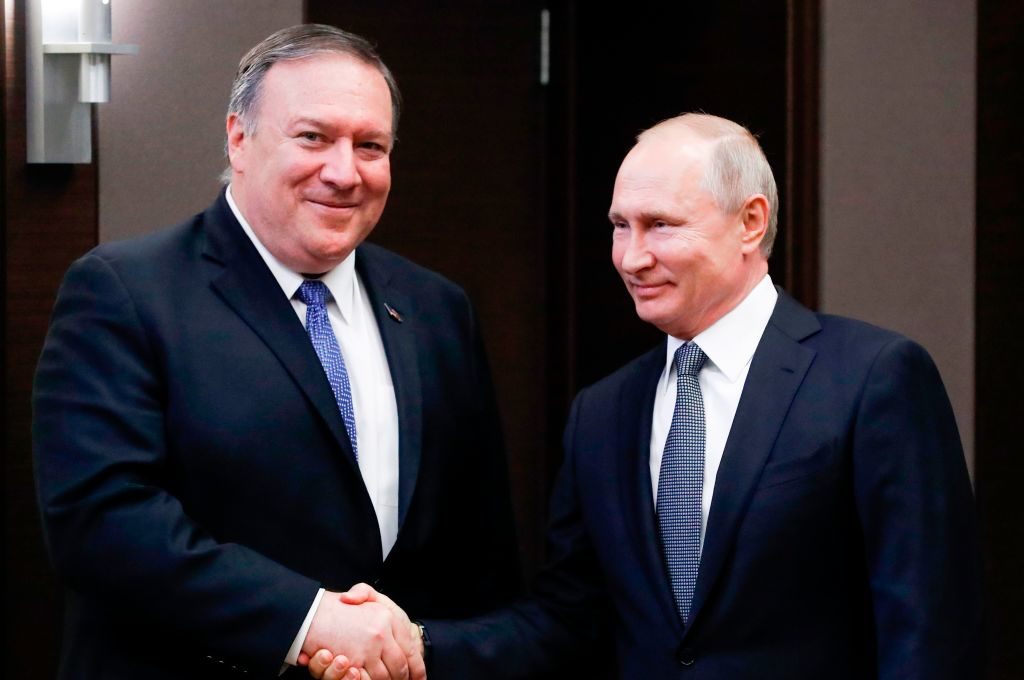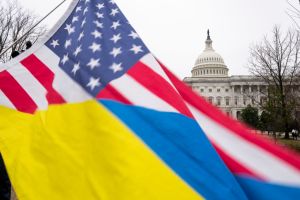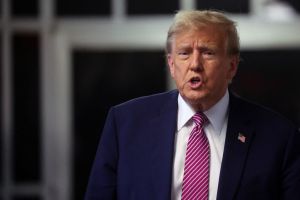On Tuesday, Secretary of State Mike Pompeo traveled to Sochi to meet Russian Foreign Minister Sergei Lavrov and, of course, Russian President Vladimir Putin.
It was the first such trip by a high-ranking US official since the release of the Mueller report in April. During his meeting with Lavrov, Pompeo struck a conciliatory tone while calling for cooperation more between the United States and Russia. If that sounds familiar that’s because it is. US-Russia diplomatic efforts always start pushing in the same direction, then something goes wrong.
‘We have differences. Each country will protect its interests, look out for its own people, but it’s not that we’re adversaries on every issue and I hope that we can find places where we have a set of overlapping interests and can truly begin to build out strong relationships, at least on those particular issues,’ the Secretary of State said.
Pompeo and Lavrov discussed a wide range of issues, including Syria, North Korea, Venezuela, Ukraine and arms control. Unsurprisingly, the subject of Russia’s meddling in the 2016 election also featured.
Pompeo warned that ‘interference in the American elections is unacceptable’ and stated that ‘if the Russians were to engage in that in 2020, it would put our relationship in an even worse place than it has been.’
When Pompeo later met Putin, the Russian president surprised many by offering praise for Robert Mueller. ‘Despite all the exotic work of Mr Mueller’s commission, I have to give him his due: on the whole, he conducted an objective investigation and confirmed the absence of any traces of a conspiracy between Russia and the current administration,’ he said.
But the Mueller report also concluded that Russia interfered in the 2016 election. That is a charge Moscow denies. Pompeo and Putin seemed to skate over this difficult matter. It was not convenient.
Pompeo’s Sochi visit is the latest move in the Trump administration’s renewed diplomatic outreach effort to Moscow since the end of the Special Counsel’s investigation. Might this be the moment for a rapprochement? Or is Trump still too concerned about looking like a Russian asset?
On May 3, Trump and Putin had a phone conversation for over an hour, in which the two presidents discussed nuclear weapons, Ukraine, North Korea and Venezuela.
The next day Trump expressed his satisfaction with the call on Twitter and proclaimed that there is ‘tremendous potential for a good/great relationship with Russia, despite what you read and see in the Fake News Media.’
In his meeting with Pompeo, Putin also spoke optimistically about the prospects for improved US-Russian relations. He said that after the May 3 phone call with Trump, he gained ‘the impression that the president is inclined towards the restoration of Russo-American ties, contacts and to solving issues together.’
Will the end of the Mueller investigation pave the way for a new détente between the United States and Russia? Robert Legvold, the Marshall D. Shulman Professor Emeritus of Post-Soviet Foreign Policy at Columbia University, does not think so.
‘The results of the Mueller report [clearing] Trump and his team of formal collusion with Russia during and after the election campaign should give the president room to do what he wants to do–that is, improve relations with Russia,’ Legvold told me. ‘But the ongoing series of investigations into other Trump misbehavior coupled with continued Congressional criticism of his foreign policy distract’ and limit him.
Wayne Merry, Senior Fellow for Europe and Eurasia at the American Foreign Policy Council, echoes Legvold’s sentiment. In fact, Merry predicts that as the 2020 election draws closer, it will become increasingly difficult for Trump to strike a deal with Russia.
‘For electoral purposes, almost nothing the administration could achieve with Russia would be advantageous and anything it attempts will be subject to misconstrual as evidence that the president is either a dupe or a tool of the Kremlin,’ Merry told me.
On Capitol Hill, there is little appetite for overtures towards Moscow, especially among Democrats. Senate Minority Leader Chuck Schumer on Monday urged Pompeo to ‘deliver a shot across the bow to Putin,’ declaring that anything less than that ‘will be a failure of democracy.’
In February, a bipartisan group of senators introduced the Defending American Security from Kremlin Aggression Act of 2019, the most comprehensive Russia sanctions bill to date.
The American public is hardly sanguine about Russia. According to a March 2019 survey from the Chicago Council on Global Affairs, 77 percent of Americans believe that Russia is ‘actively working to undermine US international power and influence,’ while 55 percent think that the United States should contain rather than cooperate with Moscow. Additionally, more recipients (39 percent) deemed Russia as ‘the greatest threat to US security’ than any other nation.
However, there is one area of potential cooperation between the United States and Russia.
A different poll, also from the Chicago Council on Global Affairs, showed that an overwhelming majority of Americans (87 percent) support a new arms-control deal with Russia.
Trump exited the longstanding INF treaty last October, but has since then voiced interest numerous times in reaching a new arrangement with Moscow. According to the Washington Post, he even tasked his staff with developing a plan for a trilateral arms-control deal between Russia, China, and the United States in late April. It’s a start.


















